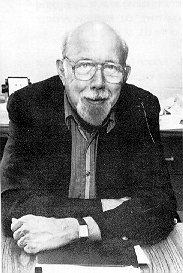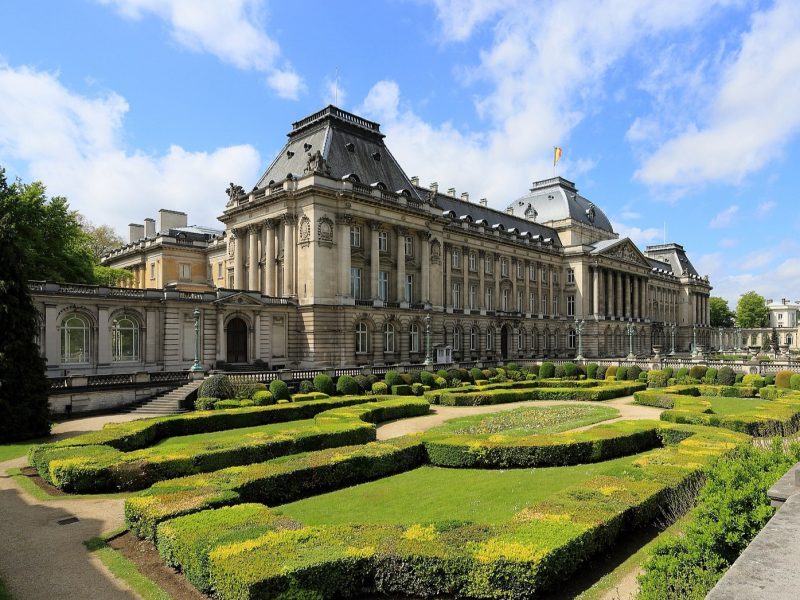
Frank B. McDonald, a university research scientist, worked as a chief NASA scientist and worked to encourage his students to learn about science and space exploration. He died Aug. 31 at 87.
Frank B. McDonald, former chief NASA scientist and senior university research scientist, died Aug. 31 after 50 years of dedicated work in space physics and cosmic ray astrophysics.
“I can’t really put words in my husband’s mouth, but I believe that his passion came from his curiosity about our universe,” his wife, Irene Kelejian McDonald, wrote in an email. “He had an insatiable thirst for finding the answers through his science.”
McDonald, who was 87, died of a cerebral hemorrhage after giving a speech at a scientific symposium in Ypsilanti, Mich., at the University of Michigan.
Frank Bethune McDonald was born on May 28, 1925, in Columbus, Ga. He graduated from Duke University in 1948 and earned his master’s and doctorate degrees in physics at the University of Minnesota in 1951 and 1955, respectively.
McDonald worked as a chief NASA scientist from 1982 to 1987. During his time at NASA, he helped launch a partnership with historically black colleges to fund research projects and a teach-in-space program which aided students in learning about science and space exploration.
He retired from NASA in 1989 as an associate director and chief scientist at NASA’s Goddard Space Flight Center.
In all his mentorships of young scientists, McDonald would encourage them to strive for excellence, his wife wrote in an email.
“He was greatly admired by generations of successful scientists because he knew how to share his expertise,” she wrote. “He was a generous and dedicated scientist, and a great friend.”
Professor Eun-Suk Seo worked with McDonald for more than 20 years, and said she is an example of his efforts to recruit exceptional scientists and researchers to the university. Seo worked at Goddard as a post-doctoral student, and McDonald hired her to work with him at this university after she earned her doctorate.
“He has been the kind of guy who’s always looking for young people to help,” she said.
Seo recalled being amazed by the dedication McDonald showed in his research when she met him at Goddard. He often stayed late into the evenings and worked on the weekends.
“He put science as a priority and that was what he has always enjoyed,” she said.
Although McDonald did not work with many students toward the end of his career, he served as a mentor to 17 doctoral students when he started his career at the university, which university chemical physics program director Michael Coplan called a remarkable achievement.
“He was a person who worked a great deal in promoting the career of young scientists and bringing to the university prominent scientists and new ideas,” Coplan added.
As an astrophysicist, McDonald always placed important emphasis on cosmic rays and was a strong advocate for seminars on the topic hosted every Monday by the university’s space physics group.
“He had a very vibrant and active research program that looked at cosmic rays and their origins,” said the institute’s director, Rajarshi Roy. “McDonald worked with scientists from all across the world and would visit them at conferences right up until the time he passed away.”
McDonald’s curiosity and appreciation for science also stretched into the kitchen with his love for cooking, Seo said. He often coordinated staff appreciation luncheons and hosted gatherings where he would demonstrate his culinary prowess.
“I had the privilege of knowing how great of a cook he was,” said Seo. “No one wanted to miss his parties because of the great food.”
McDonald was predeceased by his first wife, Virginia Ballew, from whom he was separated.
His survivors include his wife, Irene Kelejian McDonald, of University Park; his three children, Robert McDonald of Rockville, Douglas McDonald of Germantown and Kyle Jossi of Olney; and his three stepchildren, David Kelejian of Catonsville, Douglas Kelejian of Wilmington, N.C., and Melinda Kelejian of Reston, Va.



